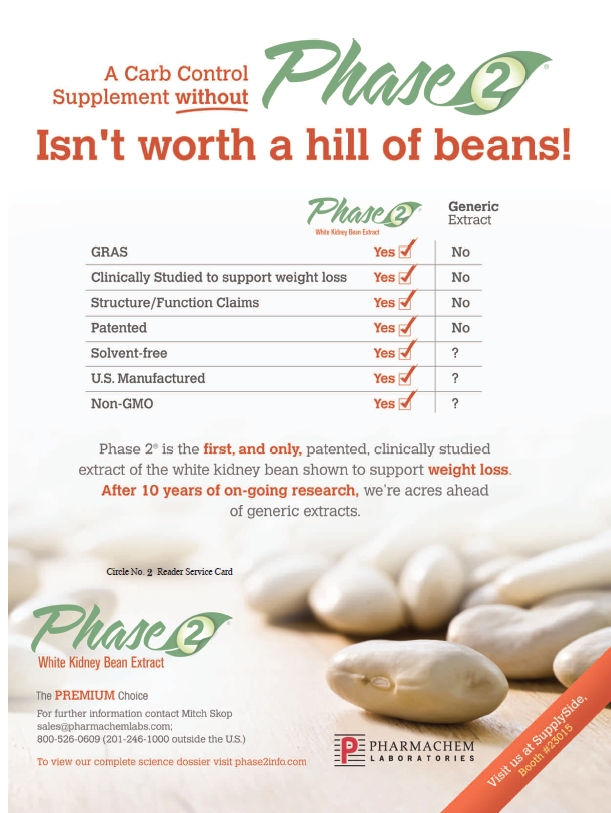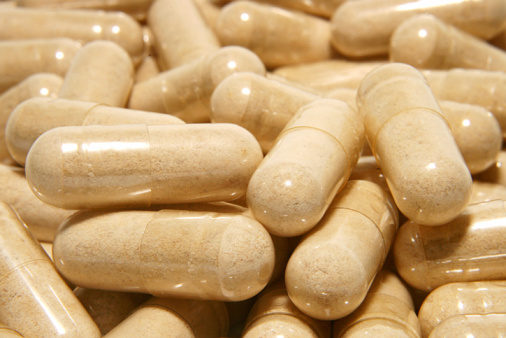What causes apples or bananas to brown? The culprits are enzymes, which oxidize phenolic compounds to make o-quinones. O-quinones produce a brown color by reacting to form compounds with amino acids or proteins. These catalysts serve a similar role in our bodies, as they are used to accelerate the process of turning one substance into another.
Differentiating Enzymes
There are two branches of enzymes: the kind we produce on our own (endogenous enzymes) and the ones we get through diet (exogenous enzymes). Exogenous food enzymes come from raw fruits, vegetables, fish and meat. Their main function is to break down the food we eat into the nutrients our bodies can use (1). But, foods such as vegetables and meat lose their enzymes when they are cooked (at temperatures higher than 120 degrees Fahrenheit), boiled or even juiced, which can produce heat through friction (2).
As for enzymes produced in the body,  metabolic enzymes build new cells and repair damaged ones found in the blood, tissue and organs while digestive enzymes work to break down food and absorb nutrients into the blood. Digestive enzymes include carbohydrase (for breaking down carbs), protease (for breaking down protein) and lipase (for breaking down fats) (1). In addition, salivary glands secrete amylase to break down starches, grains, sugars and carbohydrates. Another enzyme is lactase, which breaks down lactose, the sugar found in milk. Meanwhile, the pyloric section of our stomach introduces pepsin and hydrochloric acid to the digestion process, which are secreted for protein digestion.
metabolic enzymes build new cells and repair damaged ones found in the blood, tissue and organs while digestive enzymes work to break down food and absorb nutrients into the blood. Digestive enzymes include carbohydrase (for breaking down carbs), protease (for breaking down protein) and lipase (for breaking down fats) (1). In addition, salivary glands secrete amylase to break down starches, grains, sugars and carbohydrates. Another enzyme is lactase, which breaks down lactose, the sugar found in milk. Meanwhile, the pyloric section of our stomach introduces pepsin and hydrochloric acid to the digestion process, which are secreted for protein digestion.
Many people do not produce enough enzymes naturally or get enough through diet for proper digestion. Therefore, supplementation is often a good idea, and digestion support is a key place where such supplementation can help. When customers need extra support, these enzymes (and others) in supplement form help ensure foods are broken down correctly to maximize the nutrition we get from them and to minimize any digestive discomfort (2).
Strengthening Your Immune Health
When the digestion process is interrupted or has complications, it can lead to cellular problems due to deficiencies in important nutrients. When cells are starved of nutrients, they are unable to function properly, not allowing certain toxins out, and not letting certain nutrients in. White blood cells are highly impacted by this, which could affect our immune health.
One reason is inflammation, which should be a natural and healthy response to foreign substances. But, chronic inflammation can be damaging and the cause of a host of problems. Some feel supplemental systemic enzymes like proteases can help because they help break down proteins that are dead, damaged or are marked with an antibody (3). According to nutrition expert DicQie Fuller, Ph.D., D. Sc., “When the body’s immune (defense) system breaks down, it is because of internal enzyme shortage” (2). She relates this process to autoimmunity, the cause of chronic inflammation in some people.
 One patented combination of enzymes (rutosid, bromelain, papain, chymotrypsin, trypsin and pancreatin) was shown in studies to support immune health by offering the enzymes needed to “assist the body’s various regulatory and communications systems and support the function of tissues at a cellular level” (4). Research showed a positive resulting benefit to joint, skin, liver and glucose.
One patented combination of enzymes (rutosid, bromelain, papain, chymotrypsin, trypsin and pancreatin) was shown in studies to support immune health by offering the enzymes needed to “assist the body’s various regulatory and communications systems and support the function of tissues at a cellular level” (4). Research showed a positive resulting benefit to joint, skin, liver and glucose.
Enzyme therapy may benefit heart health, too, because it supports anti-inflammation and healthy circulation. In addition, lipase is needed to break down cholesterol and fats—certainly a factor in heart health.
Enzymes may also help with inflammation-related conditions like rheumatoid arthritis. Fuller says when she sees patients with such autoimmune diseases, she typically addresses any poor digestion issues first with a multiple enzyme supplement at meal times, a protease in between meals and other supplements.
Food for Thought
The brain is the boss of our bodies; it tells every organ when and how to do their job, so naturally we need to make sure it is healthy through a nutritional diet. The part of the brain that suffers from an unhealthy diet is the hypothalamus, found at the base of the cerebrum. This organ, no larger than a lump of sugar, controls appetite, sexual desire, sleep and so many other vital functions. It is also the main operator for our endocrine and nervous system. Unfortunately, when our digestion process doesn’t function properly, brain health can be affected (2).
Enzymes can help, and supplemental plant enzymes have been linked to mood support, for instance. According to an article by Lita Lee, Ph.D., author of The Enzyme Cure, there can be several nutritional causes for mental issues, which include protease deficiency, sugar intolerance, hypothyroidism and a junk food diet. As stated before, protease breaks down protein, and people with a protease deficiency develop more alkaline blood, which is linked to anxiety. (5).
Keeping Our Hormones in Check
The endocrine system is made up of various glands that produce hormones for the body. If there is an imbalance, it can cause many problems. One in particular, which affects many women, is premenstrual syndrome. The most common symptoms of premenstrual syndrome are headaches, weight gain, breast tenderness and sugar cravings. Some feel a high-amylase supplement will help ward off sugar craving, while taking a supplement containing protease 10 days before a period combined with a change in diet can help decrease symptoms (2).
Switching sides for a bit, enzyme  supplements can help men, too. Men who suffer from an enlarged prostate often have painful swelling and frequent, painful urination. A supplement with both protease and amylase is said to cut back these symptoms, but it must be taken carefully since an excessive amount of protease can actually cause frequent urination as well (2).
supplements can help men, too. Men who suffer from an enlarged prostate often have painful swelling and frequent, painful urination. A supplement with both protease and amylase is said to cut back these symptoms, but it must be taken carefully since an excessive amount of protease can actually cause frequent urination as well (2).
Catalysts for Beauty!
Everything that we have covered so far has concerned internal health, but what about improving the skin? Enzymes can benefit healthy skin aging, too. The reason why is that enzymes bind to the collagen in our skin, “realigning them in a more youthful, undamaged form, and act as free-radical fighters,” says chiropractic physician Anthony J. Cichoke (6). Decreased enzyme activity, he states, could lead to wrinkles, discoloration, sagging, and other signs of aging skin. Cichoke feels that digestive enzymes help make nutrients available to our skin.
While this idea may be novel, there’s much precedence for the topical use of enzymes, specifically for supporting healthy-looking skin. Dead skin cells tend to linger on the living ones, causing a blockage for moisture, leaving skin feeling and looking dry. Enzymes eat away at this barrier and allow moisturizers to penetrate the skin. One such enzyme is papain, a protease from the papaya fruit. Bromelain and superoxide dismutase have also been used for this purpose (6). You’ll find enzymes in a variety of products from peels to moisturizers to serums.
Autism Support
Though not a cure, enzymes have been investigated for their benefits to those with autism. Research indicates that the gastrointestinal tract, the nervous system and the immune system are closely related; what affects one system could affect them all. Some autistic individuals, for instance, are sensitive to certain food ingredients like dairy and gluten, which aren’t properly broken down. Upon consumption, problem foods could trigger symptoms in some (7).
According to Karen DeFelice, a pioneer in the use of enzymes, “Around 90 to 93% of people trying a good quality enzyme product see improvements. While these figures were taken from informal studies and surveys in autism related conditions, the results appear to be consistent in the general population. Benefits appear in a wide range of behavior, language, cognitive and physical issues. Older children and adults experience benefits as much as younger children” (7). She says that low-dose enzyme formulas may not be as beneficial for this purpose, recommending instead those designed for therapeutic use.
Enzymes Need Help, Too!
Don’t forget to mention that taking enzyme supplements alone will not fully fix one’s health; your customers must maintain a healthy diet as well. Enzymes need the support of coenzymes to function. These partners in health release energy from protein, carbs and fat. Coenzymes are found in B-vitamins, such as riboflavin, thiamin, niacin and biotin. The combination of a healthy diet and a healthy dose of supplements will support overall health (6). WF
References
1. T. Bohager, Enzymes: What the Experts Know (One World Press, Prescott, AZ, 2006).
2. D. Fuller, The Healing Power of Enzymes (Forbes Custom Publishing, New York, NY, 1998).
3. Enzymedica, “Frequently Asked Questions,” www.enzymedica.com/faq.php#faq34, accessed Sept. 5, 2012.
5. “Systemic Enzyme Support,” www.systemicenzymesupport.org/poster/ses.pdf, accessed Sept. 7, 2012.
6. L. Lee, “The Effects of Enzymes on Mental Health,” www.alternativementalhealth.com/articles/enzymes.htm, accessed Sept. 7, 2012.
6. A.J. Cichoke, Enzymes and Enzyme Therapy (Keats Publishing, Chicago, IL, 1994).
7. K. DeFelice, “Enzymes and Autism,” Natural Solutions, www.enzymedica.com/pdf/Natural%20Solutions%20Mag.Enzymes%20and%20autism%20comment.pdf, accessed Sept. 7, 2012.
Published in WholeFoods Magazine, October 2012









